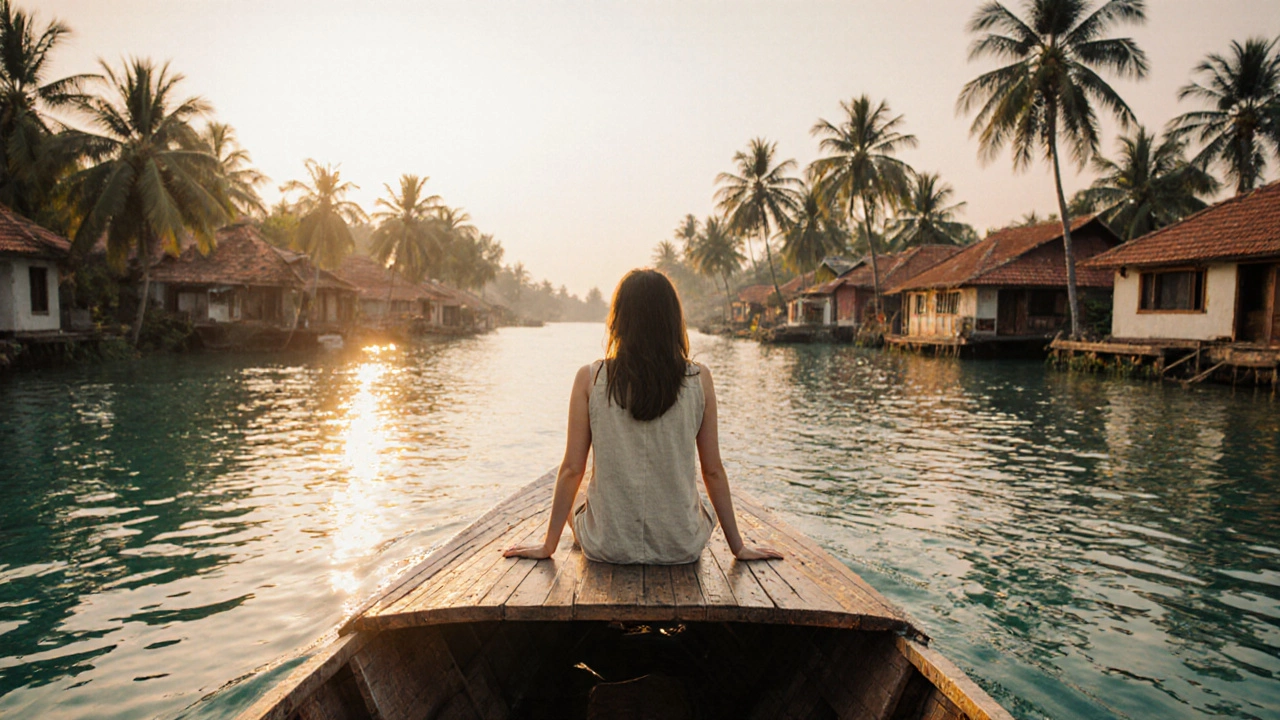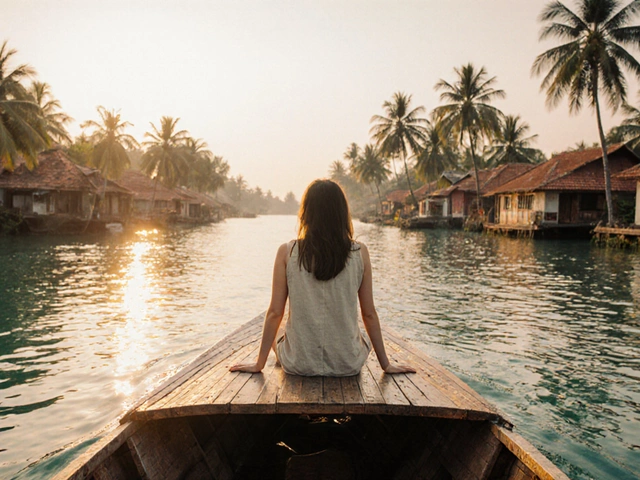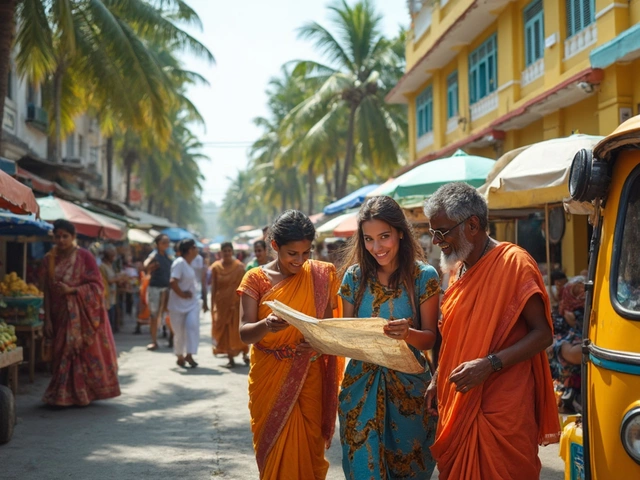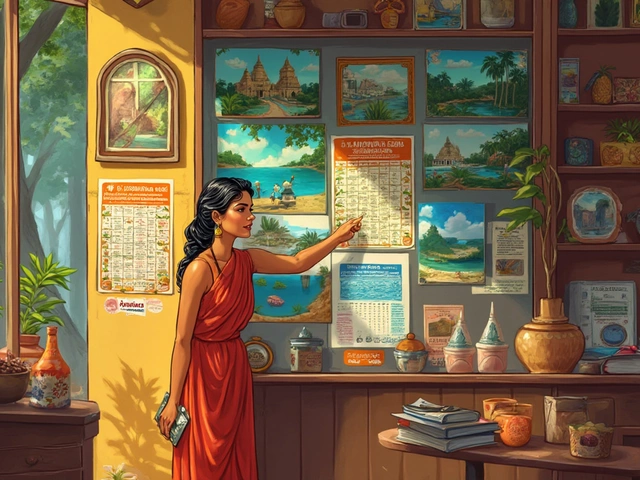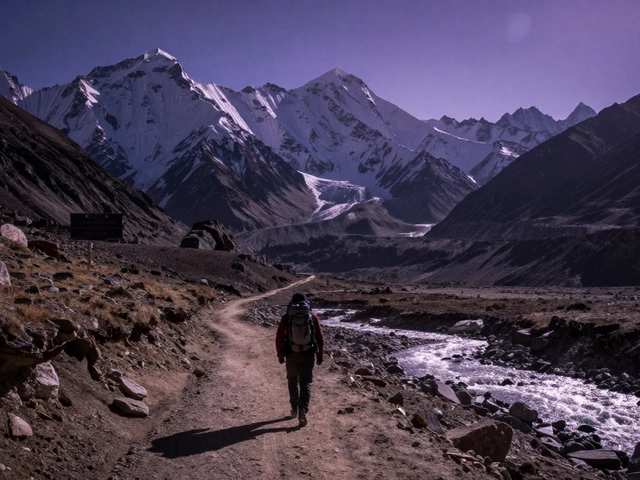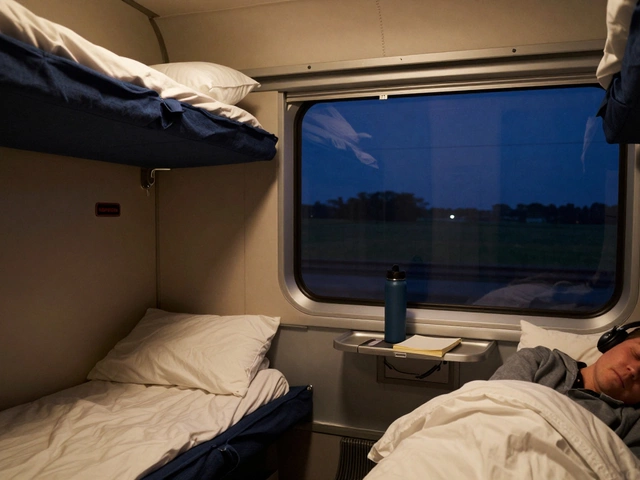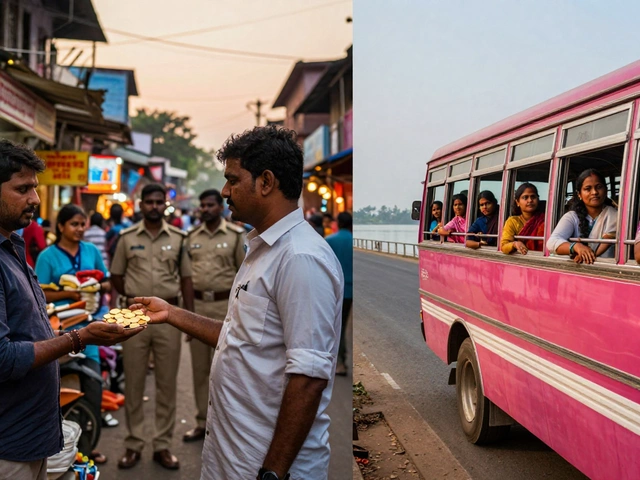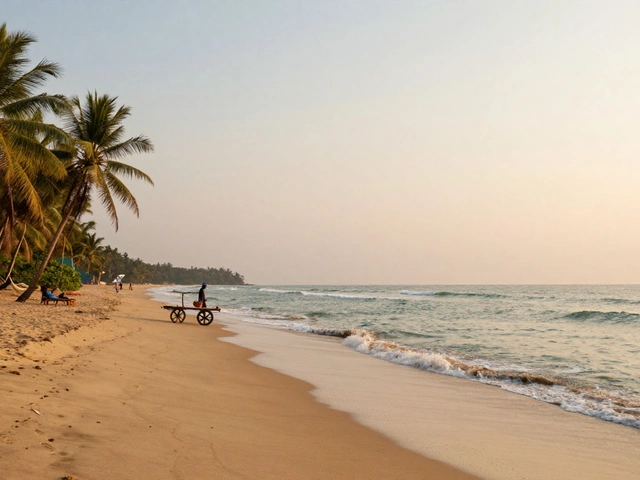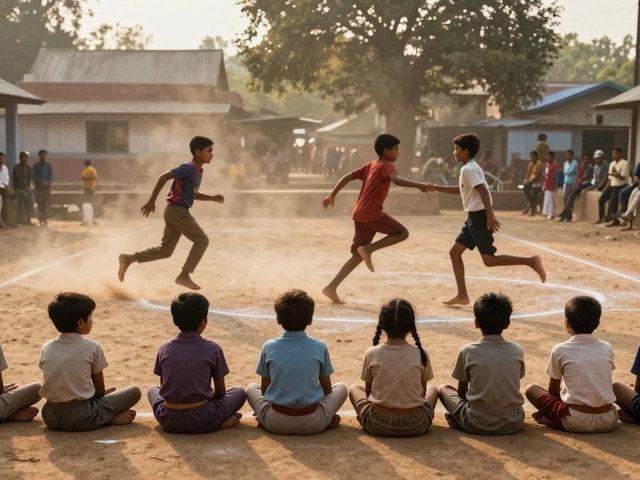Kerala Safety Assessment Tool
Check Your Safety Risk
Enter your travel details to get personalized safety recommendations for your Kerala trip.
When you think of Kerala, you picture backwaters gliding past coconut palms, spice-scented streets in Kochi, and quiet hillside temples in Munnar. But with news of protests, weather shifts, and global travel alerts, many wonder: Kerala safe to visit now? The short answer? Yes - but not without knowing where to look and what to avoid.
Kerala has one of India’s lowest crime rates against tourists. According to the National Crime Records Bureau (2024), incidents targeting foreign visitors dropped 22% from 2023 to 2024. Most problems aren’t violent - they’re minor scams, overpriced tuk-tuk rides, or unlicensed guides. These are fixable. What’s harder to predict is monsoon flooding or political unrest. So let’s break down exactly what’s happening on the ground right now.
Crime and Personal Safety: What You’re Really Up Against
Kerala’s police force is one of the most tourist-friendly in India. In tourist zones like Alleppey, Wayanad, and Fort Kochi, you’ll see uniformed officers patrolling on foot and bikes. They speak English, carry maps, and often help tourists find their way. Pickpocketing? Rare. Harassment? Almost unheard of. A 2025 survey by the Kerala Tourism Department found that 94% of international travelers felt "completely safe" walking alone during daylight hours.
That said, scams exist - mostly in crowded markets or near temple gates. A common one: someone offers to guide you to a "secret" waterfall or temple, then demands payment after you’ve walked 30 minutes. Or a "friendly" shopkeeper insists you try a "free" sample of cashew, then slaps on a ₹5,000 bill. The fix? Always ask for prices upfront. If something sounds too good to be true - like a ₹100 houseboat ride - it is.
Women travelers report feeling especially safe here. Many solo female tourists say Kerala is the only Indian state where they’ve felt comfortable taking late-night auto-rickshaws. Just avoid isolated beaches after dark. Stick to places like Kovalam or Varkala, where cafes stay open and security is visible.
Weather and Natural Risks: Monsoon Isn’t the Enemy - Ignorance Is
Kerala’s monsoon season runs June to September. But even in November, you might get a sudden downpour. That’s normal. What’s not normal? Flash floods. In 2018, Kerala suffered its worst floods in a century. Since then, the state has invested over ₹2,000 crore in drainage upgrades, early-warning systems, and emergency response teams.
As of November 2025, the India Meteorological Department reports no cyclone activity in the Arabian Sea. Rainfall is 15% below average for this time of year. Roads are clear. Backwater routes are fully operational. But here’s the catch: some rural roads in Idukki and Wayanad still have minor landslides after heavy rains. If you’re planning a hillside homestay, check with your host before heading out. Most will warn you if a route is closed.
Don’t let weather scare you off. The real danger? Trying to drive through flooded roads. Always use registered tour operators. They know which bridges are safe and which rivers are swollen. And always carry a raincoat - not an umbrella. Wind makes umbrellas useless in Kerala’s storms.
Political and Social Climate: Protests, Not Panic
In early 2025, there were protests in Thiruvananthapuram over land rights and forest conservation. These were peaceful. No tourists were affected. The state government shut down no tourist sites. No curfews were imposed. The protests ended within two weeks.
Kerala is politically active - that’s part of its culture. You might see a rally or a cultural procession. Don’t assume it’s dangerous. These are often colorful, music-filled events. Locals smile, wave, and sometimes invite you to join. If you’re near one, step back a few meters. Don’t take photos of police or protestors. That’s a quick way to get pulled aside.
There’s no anti-foreigner sentiment. Kerala has welcomed tourists for over 50 years. The state even runs free English-speaking help desks at airports and major train stations. You’ll find them marked with blue signs: "Tourist Help Line." Call them anytime. They’ll send someone to your hotel if needed.
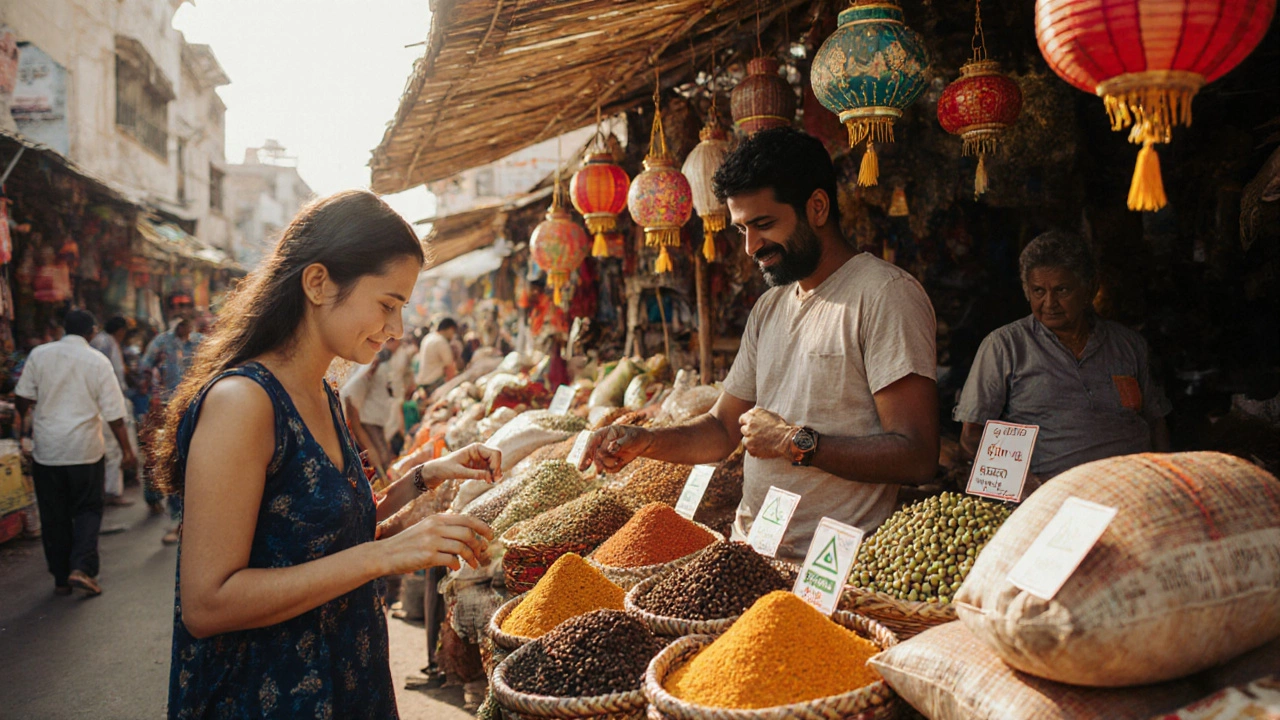
Health and Hygiene: No Need to Panic About Food or Water
Kerala’s food is legendary. But tourists worry about stomach bugs. The truth? You’re more likely to get sick from a greasy airport meal than from a Kerala home-cooked meal. Most restaurants serving tourists use filtered water and follow hygiene standards set by the Kerala Food Safety Department.
Stick to places with a clean kitchen view. Avoid street food if you’re not used to it - not because it’s dirty, but because your stomach might not handle the spice level. A 2024 study by the Institute of Public Health in Kochi showed that 89% of tourist-related gastro cases came from bottled water that was improperly sealed or stored. Buy sealed bottles from supermarkets, not roadside vendors.
Tap water? Don’t drink it. Brush your teeth with bottled water. That’s it. No need for iodine tablets or fancy filters. Hospitals in major towns like Kozhikode and Thrissur are well-equipped. Most have English-speaking staff. Emergency numbers? Dial 108 for ambulance, 112 for police.
What’s Changed Since 2024? The Real Updates
Two big things have improved:
- Transportation: The state now runs 120 new tourist-friendly buses with GPS tracking. You can book them via the "Kerala Tourism App" - no haggling, fixed fares, AC, and free Wi-Fi.
- Digital Payments: Almost every homestay, temple donation box, and ferry ticket counter now accepts UPI. You don’t need cash unless you’re buying from a village vendor.
Also, the government launched a new safety badge system. Look for this logo on tour operators, houseboats, and guides: a green triangle with a white hand holding a map. Only certified businesses get it. Ask for it. If they don’t have it, walk away.
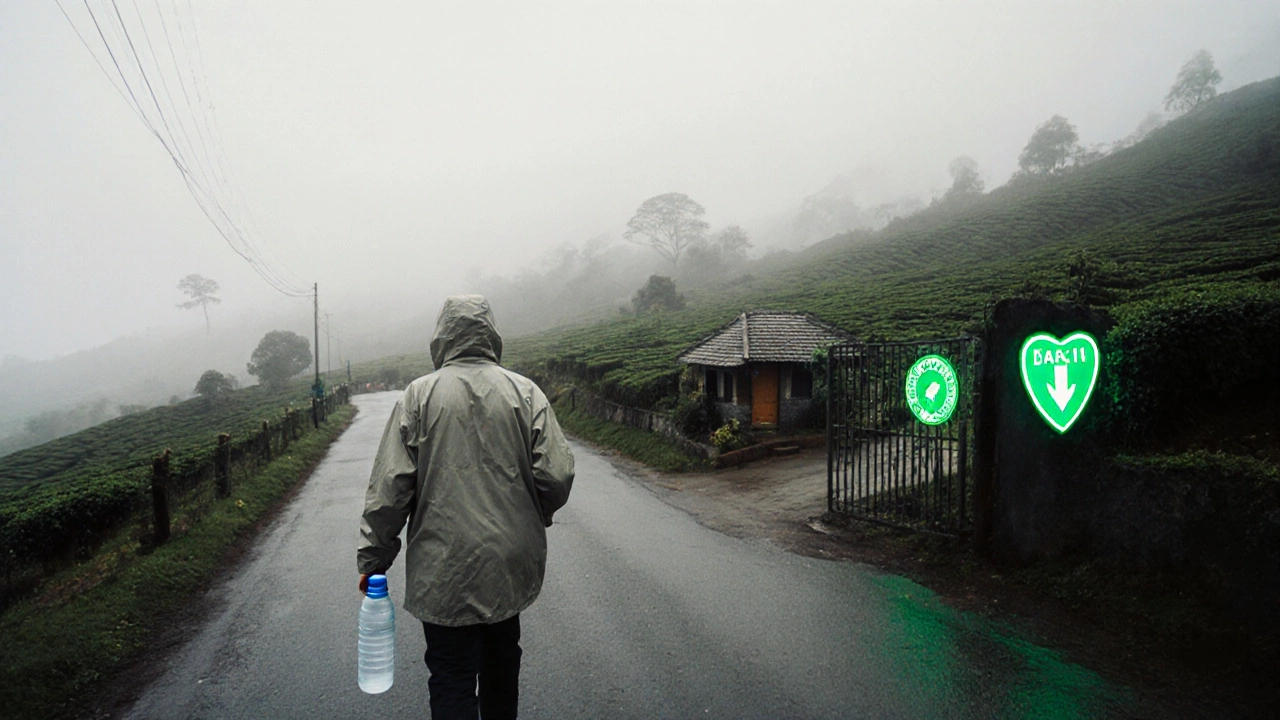
Who Should Think Twice Before Visiting?
Kerala is safe for almost everyone. But if you fall into one of these groups, adjust your plans:
- Travelers with mobility issues: Some heritage homes and temple steps aren’t wheelchair-friendly. Book accessible stays in advance.
- Pregnant women: Avoid remote areas like Silent Valley or high-altitude trails in Wayanad. Stick to the coast or towns with hospitals nearby.
- Those with severe allergies: Kerala uses a lot of coconut oil and peanuts. Always ask: "Is this cooked with groundnuts?"
For everyone else? Pack light. Bring a reusable water bottle. Learn three Malayalam words: "Njan" (I), "Thottu" (please), and "Nanni" (thank you). Locals will smile. And that’s half the safety you need.
Final Verdict: Is Kerala Safe to Visit Now?
Yes. Kerala is safer now than it was five years ago. The infrastructure is better. The staff is trained. The warnings are clear. You won’t find a more welcoming, organized, and tourist-smart state in India.
Don’t let fear of the unknown stop you. The real risk isn’t crime or weather - it’s missing out. Go. Walk the backwaters. Eat the fish curry. Sit under a banyan tree and watch the sunset. Kerala doesn’t just welcome tourists - it makes them feel like family.
Is it safe to travel to Kerala alone as a woman?
Yes. Kerala is one of the safest states in India for solo female travelers. Women report feeling secure walking alone during the day and even taking late-night autos in tourist areas like Kovalam and Fort Kochi. Police are visible and helpful. Just avoid isolated beaches after dark and always use registered transport services.
Are there any travel restrictions in Kerala right now?
No. There are no travel bans, curfews, or entry restrictions for tourists as of November 2025. All tourist sites - from temples to backwaters - are fully open. The only exception is a few forest trails in Wayanad that may be temporarily closed due to landslides. Check with your hotel or the Kerala Tourism helpline before heading out.
Is the monsoon still a problem in November?
November is the tail end of the monsoon, but rainfall has dropped significantly this year. You might get a brief shower, but it won’t disrupt travel. Roads are clear, houseboats are running, and backwater routes are fully operational. Pack a light raincoat - not an umbrella. Wind makes umbrellas useless in Kerala’s storms.
Can I use credit cards in Kerala, or do I need cash?
Most hotels, restaurants, and tour operators accept UPI, Paytm, and credit cards. Even small shops near tourist spots now have QR codes. But carry some cash - ₹500-1,000 - for village vendors, temple donations, or auto-rickshaws that don’t take digital payments.
Are there any health risks like dengue or malaria in Kerala?
Dengue cases have dropped sharply since 2023 due to state-wide fogging and waste management programs. Malaria is nearly nonexistent in tourist areas. No vaccines are required. Use mosquito repellent at dusk, especially near wetlands. Most homestays provide it for free.
How do I know if a tour guide is legitimate?
Look for the green triangle badge with a white hand and map - it’s the official Kerala Tourism certification. Ask to see their ID card. Legit guides work with registered agencies. Avoid anyone who approaches you at train stations or temples offering "free" tours. Always book through your hotel or the Kerala Tourism App.
If you’re ready to go, book your trip. Kerala isn’t just safe - it’s one of the most rewarding cultural experiences in South India. Just pack your curiosity, not your fears.
